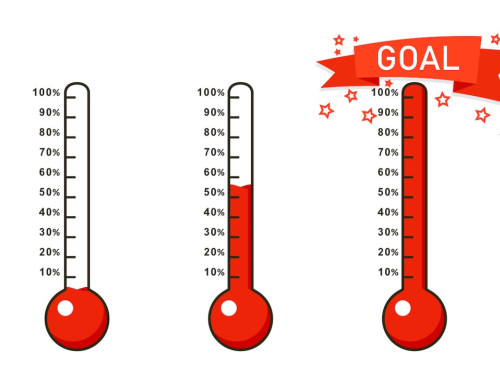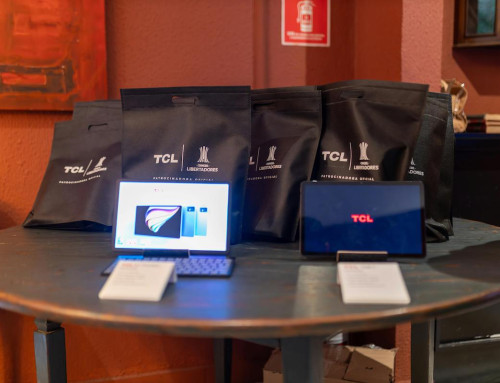 The value of your online community network goes way beyond financial contributions, and building value for your alumni is key to nurturing a life-long relationship.
The value of your online community network goes way beyond financial contributions, and building value for your alumni is key to nurturing a life-long relationship.
People want to feel valued. By recognising their skills, understanding their interests, and personalising communications you build stronger relationships and a community more willing to support you.
Why is having good relations with alumni important?
Engaged alumni can:
- Mentor current students to offer career guidance and opportunities
- Act as ambassadors for your institution
- Contribute money or sponsor
- Volunteer or offer expertise
- Attend your events
Find our how our alumni engagement software can help educational institutions.
With this in mind, let’s look at some practical ways to ensure better alumni online community engagement.
1: Understand your audience
This sounds like marketing speak, but this applies as much to Alumni engagement and your online community as it does to any other communications strategy. Usually, businesses start with a user persona. With current students, this is fairly easy to do, as you have specific and current information about them, for example, the subjects they study and their interests (e.g. societies, clubs). For alumni, this can be more difficult, especially over time, and it is easy to lose touch altogether.
If you have an alumni website, group on Facebook or Linkedin etc, or a dedicated alumni engagement platform/online community, use available metrics (e.g. post likes, downloads, views, comments etc) to see what content resonates with particular audiences and build your communications around the topics that engage most.
You can also make use of social listening tools like Hootsuite to find out what your alumni are talking about on social in relation to hashtags and keywords such as #Alumni #Careers or #Education.
 2: Provide added value to your alumni
2: Provide added value to your alumni
An exceptional education extends beyond the time at university, and those graduates that feel you continue to provide something of value to them are much more likely to engage and give back. But what does providing value actually mean? As discussed in our post, Should we call our alumni the ‘C’ Word?, an increasing number of students and alumni regard themselves as customers of the university.
Value can take the form of sharing useful content, organising events, or just sharing memories and stories. As a university, you will also have a wide range of useful research, insights resources and expertise that will be useful to alumni at various stages of their lives and careers.
Having a private platform for your online community, or site that allows alumni to connect to each other, share experiences, get careers support, and stay in the loop with what is happening on campus is also something of great value. Once again, understanding what is important to your alumni is key, and using data to identify the needs and wants of your community is the best way of doing this.
One of our clients, UWE Bristol, had great success building their alumni online community through an Executive Education programme that blends face-to-face sessions with webinars and social events. This added tremendous value, giving alumni access to life-long learning cutting edge research, and cross disciplinary networking opportunities. The course was oversubscribed by 125% over just 24 hours.
3: Maintain your database
Your communication is only as effective as the quality of your data. Effective alumni programs invest in keeping contact information up to date. Successful outreach is only possible with up to date contact information. This can be exceptionally beneficial for your online community.
It can be disheartening professionally as well as personally if your communications fall on deaf ears, or your initiatives do not work as well as you had hoped.
At a recent CASE exhibition, Jacob Jenson, Technical University of Denmark said: “Consider data as fuel for your database. You need enough fuel to get where you want to go. Too much data, or the wrong type, will waste your resources.”
Maintaining an up-to-date database can be a challenge, especially if you do not have a system for regularly updating records.
The first step is to ask for contact information from students before they graduate, and then get updates from alumni whenever possible, at events, over the phone, via email and so on. If you have an online community platform, Alumni can often update records themselves, or with advanced online community solutions like Aluminate, by synchronising profile information from social platforms such as LinkedIn or Facebook. With Aluminati’s Social Network Sync, The University of Manchester received 20,000 individual data updates in the first 6 months of use.
The fact is that effective outreach is not possible without current contact information.
Top tip: Collect alternate email addresses from your alumni. DTU grew their database from 3000 to 4200, and increased deliverability as their email solution blocks invalid addresses and will deliver to the alternative address.
 4: Match events and messaging to alumni interests
4: Match events and messaging to alumni interests
According to a recent study, the number of people who click on links are 100.95% higher in segmented email campaigns than non-segmented campaigns.”
Your alumni are a varied bunch of different ages, locations, and beliefs. Using segmented data to communicate is vital to getting the messaging right for different people.
Without the right tools, this is hard to do. The benefits of having strong a strong segmentation system in place are huge…with the right information, you will know who is more likely to donate, do a presentation, or attend a certain type of event.
Once they have attended, you will know for sure the things that interest them, so invite them to other events that are similar.
It stands to reason that this is the case with any form of communication, the more targeted it is, the better the user response will be.
5: Tailor communications channels based on audience expectation
In a recent conversation with one of our clients Tom Jirat, Head of Operations (Development and Alumni Relations) at The University of Manchester, stressed the importance of using the right communications channels for different audiences based on their expectations and social experience.
“I think we’ve got to be careful in fundraising and alumni relations in higher education not to see post, phone and email as a kind of ‘holy trinity’ when it comes to personalised marketing and communications. These channels might be OK for alumni who have lived the majority of their lives with phone and post as core methods of communication, and who have adopted email as it became mainstream… but the majority of today’s graduates who enter university in their late teens will probably only ever have known fast internet, and will have grown up with a multitude of social and communication channels. So their expectations of how we communicate with them both now and in future may be very different to what we’ve known and had success with as a sector to date, and how we build relationships with them will need to adapt as a result – as will the communications channels we use to do so.” An online community fits this bill like a glove.
Tom’s assertion is backed by the whitepaper Mind the Gap: Communicating Through the Ages from NTT Data. The differences are made very clear in the guidance offered.
‘Generation Xers grew up with email communication, and despite the general complaint of “email rules my life,” they can’t live without it. Email remains the most prevalent communication medium for this generation.’
‘Given their comfort with and proclivity for technology, communication with millennials (generation Y) should utilize technology as much as possible. Text, instant messenger, online communities and mobile phone app technology all align with the Generation Y interest in instant communication.’
‘Communication with generation Z should leverage their comfort with multitasking by focusing on multiple platforms, short snippets versus paragraphs (so-called “snackable” content) and visually stimulating content.’
Use guidance like the whitepaper above to ensure that you are using the best channels to communicate with your different alumni, and tailor your communications accordingly.
Whether it is an alumni management platform for your corporate entity, or an alumni engagement software for your educational institution…
Find our how Aluminate can help your Alumni online community.
I hope that this has been a useful read, do get in touch if you have any questions or suggestions. If you would like to find out how we can help improve alumni engagement please get in touch.




